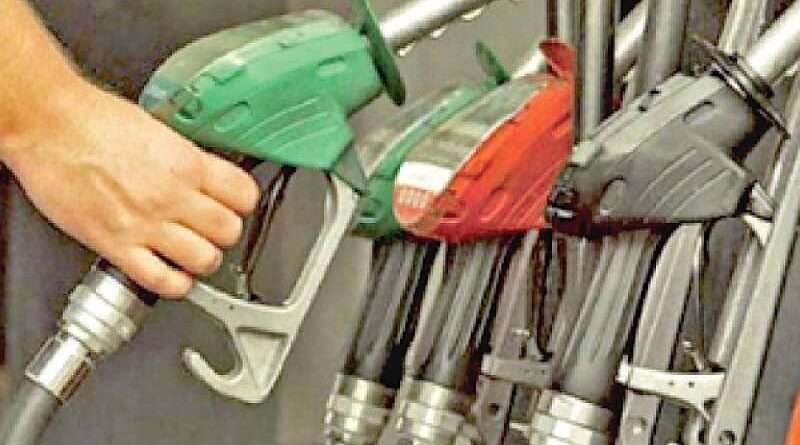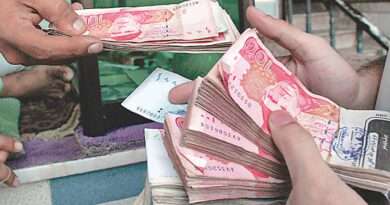Diesel Price Likely to Rise by Rs3.62 per Litre
|
Getting your Trinity Audio player ready...
|
High-Speed Diesel Price Expected to Increase by Rs3.62, While Petrol Sees a Minimal Rise
In a recent development, the price of high-speed diesel (HSD) in Pakistan is projected to increase by Rs3.62 per litre starting from January 1, 2025. Meanwhile, the price of petrol is expected to rise marginally by only 11 paisa per litre, setting the new price at Rs252.11 per litre. After the estimated hike, the price of high-speed diesel will reach Rs259 per litre.
Overview of Fuel Usage
Petrol is primarily used in passenger vehicles, while diesel is predominantly consumed by heavy transport and the agricultural sector. This distinction highlights the different economic impacts these price changes may have on various sectors of the economy.
Kerosene Oil and Light Diesel Oil
The ex-depot price of kerosene oil is expected to remain unchanged at Rs161.66 per litre. However, light diesel oil (LDO) might see an increase of Rs3.03, bringing its price to Rs151.97 per litre.
Factors Influencing Fuel Prices
Energy experts have identified the premium on oil as $8.69 per barrel. This calculation takes into account the current rates of the petroleum levy, general sales tax (GST), and the currency exchange rate. The Inland Freight Equalisation Margin (IFEM) is projected to stay at Rs7.92 per litre for petrol and Rs4.18 per litre for high-speed diesel.
Addressing Price Differences
Sources indicate that the price difference for petrol and light diesel oil across different regions of the country may be addressed using the Inland Freight Equalisation Margin. This approach aims to standardize fuel prices nationwide, ensuring fairness and reducing regional disparities.
Ogra’s Role and Final Decision
The Oil and Gas Regulatory Authority (Ogra) will finalize its calculations and submit them to the federal government for a decision on Tuesday night, the last day of December. The government’s decision will determine the official prices for the first fortnight of January 2025.
Detailed Analysis and Insights
Impact on Transportation and Agriculture
The anticipated rise in diesel prices will likely have a significant impact on the transportation and agricultural sectors. Diesel is a crucial fuel for heavy transport vehicles and farming machinery, making it a vital component of Pakistan’s economic activities.
Transportation Sector
Higher diesel prices will increase the operational costs for transport companies, which may translate to higher freight charges. This, in turn, can lead to a rise in the prices of goods and commodities transported across the country.
Agricultural Sector
For the agricultural sector, an increase in diesel prices means higher costs for running tractors, harvesters, and other machinery. This could result in increased production costs for farmers, potentially affecting food prices and overall agricultural output.
Comparison with Petrol Price Hike
In contrast to the significant rise in diesel prices, the marginal increase in petrol prices is less likely to have a substantial economic impact. However, it will still affect passenger vehicle owners and could contribute to a slight increase in transportation costs for individuals.
Kerosene and Light Diesel Oil Stability
The stability in kerosene oil prices will be a relief for households using it for cooking and heating. On the other hand, the increase in light diesel oil prices will affect small-scale industries and businesses relying on LDO for various operations.
Economic Implications
The projected changes in fuel prices will have broader economic implications. Higher diesel prices can lead to inflationary pressures, affecting the cost of living and overall economic stability. The government’s ability to manage these price changes will be crucial in maintaining economic balance.
FAQs
1. Why is the price of high-speed diesel expected to rise significantly?
- The price of high-speed diesel is expected to rise due to global oil price trends, the premium on oil, and domestic tax and levy adjustments.
2. How will the increase in diesel prices affect the transportation sector?
- The increase in diesel prices will raise operational costs for transportation companies, potentially leading to higher freight charges and increased prices for transported goods.
3. What measures is the government taking to address regional price differences in fuel?
- The government is using the Inland Freight Equalisation Margin to address regional price differences, ensuring standardized fuel prices across the country.
4. Will the price of kerosene oil remain stable?
- Yes, the ex-depot price of kerosene oil is expected to remain unchanged at Rs161.66 per litre for the upcoming fortnight.
5. What is the role of the Oil and Gas Regulatory Authority (Ogra) in determining fuel prices?
- Ogra calculates and proposes fuel price adjustments based on various factors, including global oil prices, taxes, and levies, and submits these proposals to the federal government for final approval.
Conclusion
The anticipated increase in diesel prices by Rs3.62 per litre and the marginal rise in petrol prices by 11 paisa per litre starting January 1, 2025, reflect the broader economic dynamics affecting Pakistan. While the stability in kerosene oil prices offers some relief, the overall impact on transportation, agriculture, and the economy will require careful management and strategic planning.




